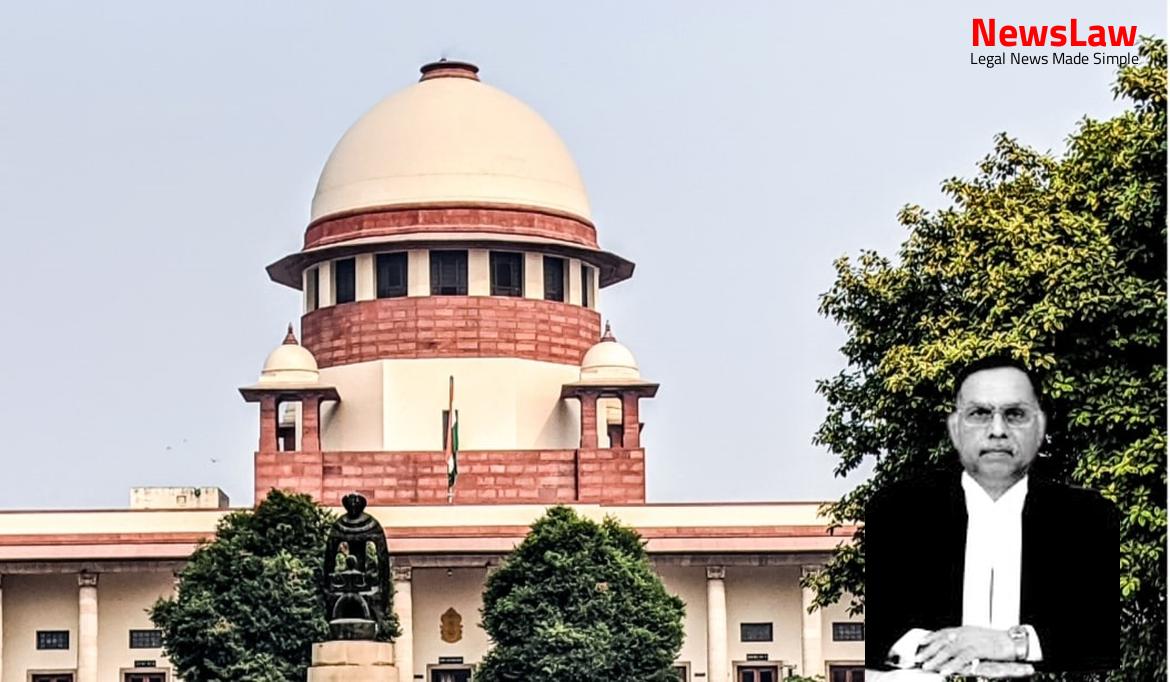Explore the in-depth legal analysis conducted by the court on the application of limitation periods in arbitration disputes. This summary highlights the court’s detailed examination of the relevant statutes and the precedence of the 2008 Act over the 1963 Act. Join us to understand the court’s reasoning and conclusions on the matter.
Facts
- Article 137 of the Limitation Act, 1963 was held to be applicable by the Arbitration Tribunal.
- The respondent filed a reference to the Arbitration Tribunal on 21 March 2013 regarding the termination of the agreement made on 8 June 2010.
- The Arbitration Tribunal made an award on 15 September 2014.
- The reference made on 21 March 2013 was not barred by limitation as per Section 9 of the 2008 Act.
- Interest payable on different amounts was specified in the agreement executed on 15 December 2007.
- The Bihar Industrial Area Development Authority, the first appellant, was a party to the agreement.
- The appellants filed a revision petition before the High Court under Section 13 of the 2008 Act.
- The Bihar Public Works Contract Disputes Arbitration Tribunal was constituted under the Bihar Public Works Contracts Disputes Arbitration Tribunal Act, 2008.
- The executive engineer of the first appellant invited a tender for drainage work in an industrial area, which the respondent bid on and was accepted.
- The dispute can be referred within one year from the date it arose as per the 2008 Act.
- The High Court held that Article 137 of the 1963 Act applied, allowing the respondent’s dispute to proceed without being barred by limitation.
- The Arbitration Tribunal ruled in favor of the respondent, granting a refund of earnest money and security deposit.
- The respondent is entitled to Rs. 22,42,269 as the security deposit.
- Simple interest at 10% per annum was awarded on the amounts due.
- The High Court upheld the Tribunal’s decision, dismissing the revision petition.
- The respondent was found entitled to unpaid dues amounting to Rs. 27,94,990.
- Additional amounts of Rs. 6,22,476 and Rs. 50,000, previously deducted as penalty, were to be refunded to the respondent.
- The provisional deduction of Rs. 3,68,400 was also ordered to be refunded to the respondent.
Also Read: Quashing of Complaint: Legal Analysis
Arguments
- The arbitration reference was made belatedly, violating the one-year limitation period prescribed in Section 9(1) of the 2008 Act.
- The respondent’s reference application in the arbitration proceedings proceeded on the erroneous belief that it was filed within the limitation period.
- The 2008 Act is considered a local law with a distinct limitation period from the 1963 Act, hence Section 5 of the latter will not apply.
- Article 137 of the 1963 Act is deemed inapplicable as the 2008 Act’s Section 9(1) sets a one-year limitation period for arbitration references.
- The forfeiture of earnest money and security deposit of the respondent was justified as per the argument presented.
- Tribunal held that there was no power to impose a penalty
- The award of interest at the rate of 10% per annum was justified
Also Read: Legal Interpretation of Overriding Effect in Food Safety Legislation
Analysis
- High Court found there was a delay of 21 months in approaching Arbitration Tribunal.
- The respondent’s reference petition proceeded as if there was no delay.
- No provision in the agreement to forfeit earnest money or security deposit as interpreted by the Arbitration Tribunal.
- Limitation period under Section 9 of the 2008 Act is one year from the date the dispute arose.
- 2008 Act specific limitation period overrides Article 137 of the 1963 Act.
- Arbitration Tribunal can condone the delay under Section 18 of the 2008 Act.
- Dispute defined under Clause (e) of Section 2 of the 2008 Act.
- If arbitration clause is absent, disputes regulated by the 2008 Act as per Section 22.
- 2008 Act prevails over the 1996 Act in case of conflict as per Section 8.
- Sufficient cause for delay in reference made out by the respondent as per the High Court.
- High Court acknowledged the narrow scope of interference with Arbitration Tribunal’s award in revisional jurisdiction.
- No application of 1996 Act as there is no arbitration clause in the agreement.
- No interference with the award on the ground of limitation under Article 136 of the Constitution of India.
- Revision scope limited as per Section 13 of the 2008 Act.
- Arbitration Tribunal found an amount of Rs. 27,94,990/- was not paid as per the bill.
- Section 9 of the 2018 Act mandates that any dispute between parties to a contract must be referred to the Arbitration Tribunal, regardless of the presence of an arbitration clause.
- The parties must refer the dispute in writing to the Tribunal within one year from the date the dispute arose.
- The Tribunal, upon receiving the reference, may admit or reject it based on compliance with the Act’s requirements.
- If the reference is admitted, the Tribunal will proceed to make an award or interim award after recording evidence and allowing parties to present their arguments.
- The Tribunal is required to make an award within four months of admitting the reference.
- The award, once made, is final and binding on the parties and can be enforced as a decree.
- The High Court has the authority to revise an award under specified circumstances, such as jurisdictional errors or illegal conduct.
- The Tribunal can extend the period of limitation for admitting a reference or entertaining review or revision applications if a party can show sufficient cause for delay.
- Interest on claims not justified in the facts of the case
- No justification found for the grant of interest on the respondent’s claims
Also Read: Analysis of Improper Grant of Bail in the Director of Enforcement v. Bablu Sonkar Case
Decision
- Interest rate of 10% on claims modified
- Interest granted from 29 July 2010 on other claims
- Interest at 10% per annum on principal amounts from 21 March 2013 if not paid within three months
- Appeal partly allowed with above directions
- Interest at 10% per annum from date of reference if principal amount not paid within three months
- Principal amounts to be paid within three months from today
- Appellants to pay only principal amounts to respondent
Case Title: BIHAR INDUSTRIAL AREA DEVELOPMENT AUTHORITY Vs. RAMA KANT SINGH (2022 INSC 308)
Case Number: C.A. No.-002030-002030 / 2022



